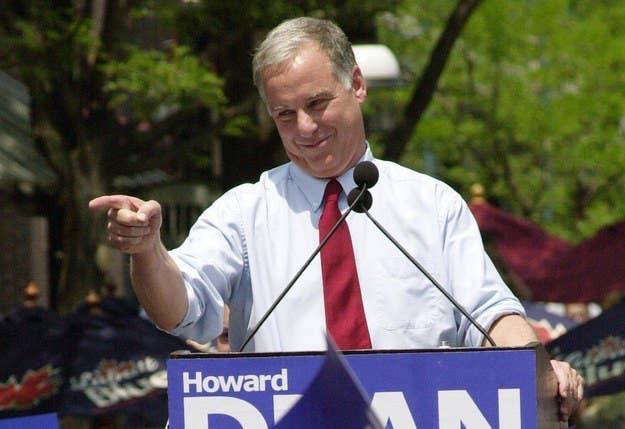
WASHINGTON — As national progressives craft their opposition plan to a new U.S. military intervention in Iraq, one prominent liberal group says the path away from a new American quagmire in Iraq leads through Congress.
Democracy For America, the group formed from the remnants of Howard Dean's 2004 anti-Iraq war presidential bid, is planning to call on President Obama to consult with Congress before launching airstrikes — or some other military action — on terrorist insurgents threatening the American-backed Iraqi regime. DFA formally opposed new American military action in Iraq in a statement scheduled to go out Monday afternoon, calling on U.S. leaders to "bring the international community together" to "deescalate this sectarian conflict" in a non-military fashion in conjunction with the Iraqi regime.
Officials with the Vermont-based group say talks over the weekend with people on Capitol Hill have given progressives the impression a strong bipartisan coalition would stand in the way of military action in Iraq if Obama gives Congress a chance to weigh in on it.
Regardless of the outcome, DFA executive director Charles Chamberlain said that Obama "absolutely needs to consult with Congress" before making any new decisions.
"That's what separates out American democracy from dictators and horrible governments across the world," he said, "and the reason why that works is that we have a president that can consult with congress before making big decisions. That doesn't just make a unilateral decision to go in for military conflict."
On Monday, Sen. Richard Blumenthal joined the progressive push for Congressional authorization prior to new airstrikes in Iraq. The Connecticut Democrat told MSNBC "I urge the president to come to the Congress with specific proposals and recommendations."
So far, the White House has been unwilling to say whether congress will get a chance to weigh in before new military action is underway in Iraq. Obama asked Congress for guidance on Syria before he decided not to commit U.S. forces to the conflict, though at the time he said he did that while reserving the power not to ask Congress again in the future.
Obama hasn't said what he'll do about Iraq yet. Chamberlain said that after the firm pro-war ideological stance of George W. Bush, Obama's public thinking through of what to do next in Iraq is welcome. Even if DFA's leaders know what they want him to do.
Or, in the case of Iraq, not do.
"The difference with President Obama is we see a president who's clearly thinking through what his options are. He's clearly considering everything on the table and he's not ideologically driven by, in the case of our previous president, by the conservative war hawk right," he said. "In the case of this current president, people might think of him as driven by, potentially the super dove left. It does not seem that this president is heavily predisposed to go one way or another, and I think most Americans appreciate that."
Read DFA's staement on Iraq
"President Obama was right to end the Iraq War in 2011, and it would be a tremendous mistake to restart it now. Democracy for America members support President Obama's decision not to put American boots on the ground and we urge the President and Congress to reject any increased U.S. military involvement, including airstrikes, in this growing, sectarian civil war.
Opposition to George W. Bush's tragic, misguided war in Iraq brought Democracy for America's one million members together in 2004 and guided our support for President Obama through two presidential elections. Rather than debating bombing runs, now is the time for the United States to bring the international community together to push Prime Minister Maliki to build an inclusive government that will help deescalate this sectarian conflict."
